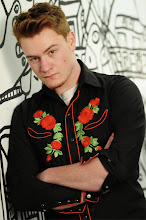Sometimes rediscovering an old favorite can be a rewarding experience. All of the hidden corners that you explored in the past show themselves in a different light, and ideas that were confusing or unclear are plain as day. Unfortunately as I put a copy of Led Zeppelin I on my turntable and watched the track names dance in circles, I was horrified to discover that I felt nothing.
So I went through the other albums that I hold up as classics. Appetite for Destruction is just as monstrously frightening, Belle is as tender and jubilant as the first time I heard it and The Battle Of Los Angeles still scares the piss out of me. But something was wrong with that Zeppelin record.
It starts out alright. Two big snare hits that show how tight this band can be, even on the first track of their first record. A two beat overture to describe what's coming. This is a band out to prove something and they're all great players, obviously in touch with their instruments. John Paul Jones bobs and weaves like Sugar Ray Robinson, and the Gatling gun that Bonham has hooked up to his bass drum seems to be firing smoothly. Paige squeals and moans, moving from one idea to the next, and Plant is hitting notes that only dogs can hear. These kinds of sounds coming out of a quiet suburban Hi-Fi in 1969 must have scared a lot of people.
But 45 minutes, nine tracks, and nine million notes later, I don't feel any different than I did before those two big snare hits. Everyone is listening to themselves, making sure their runs are cool enough, that their fills show just how much time they've spent practicing. The problem with this kind of introspective attitude is that it leaves no room to listen to the other musicians, let alone the song itself.
If this was the only problem with Led Zeppelin I it would still be a great record. It's understandable to want to prove yourself on your first time, and even though it detracts from the depth of the album it's hard to hold it against them. The real problem with this LP is the swagger. It's not that Jackie Wilson type of swagger that is more endearing than arrogant. It's that hair band swagger, that Tom Wolfe swagger, that 2004 Oval Office swagger. It's the kind of arrogance that lets you know they're trying to cover up something they're missing. Something that you can't hide with guitar solo's or drum fills. And 45 minutes, nine tracks and nine million notes later I figured out what it was. Underneath all of the talent, all of the chops, there's nothing human about this record.
